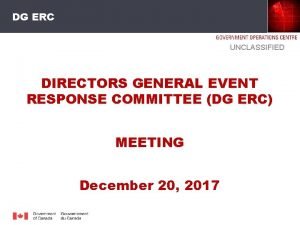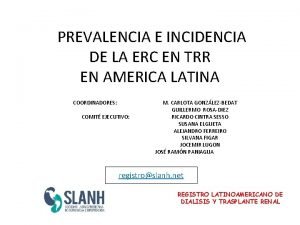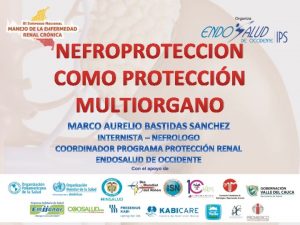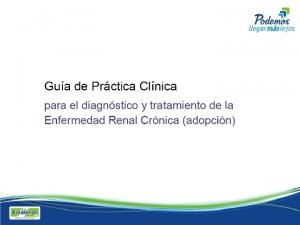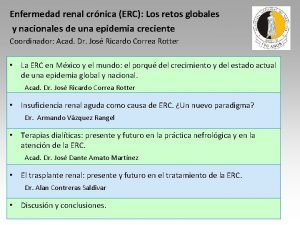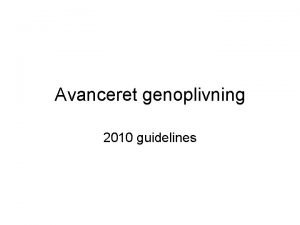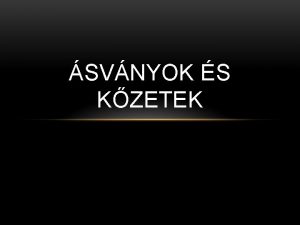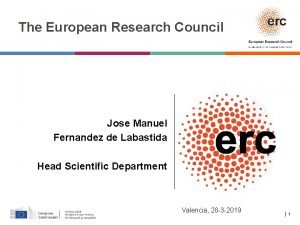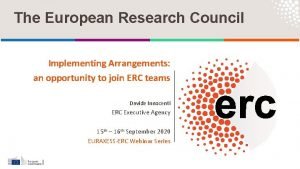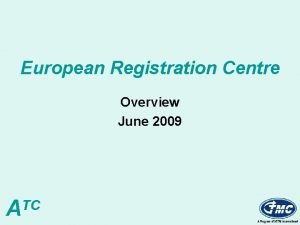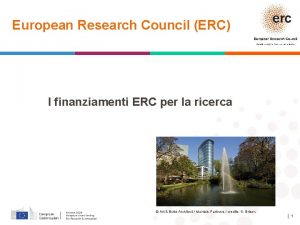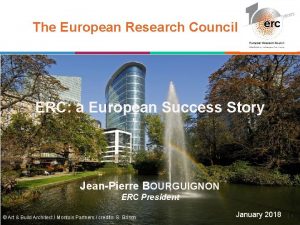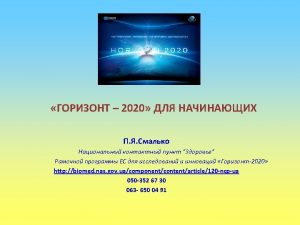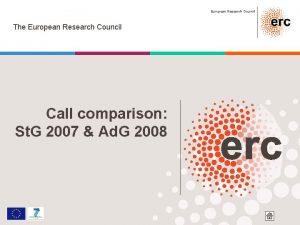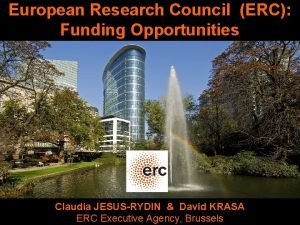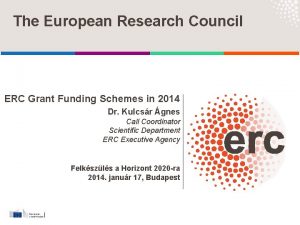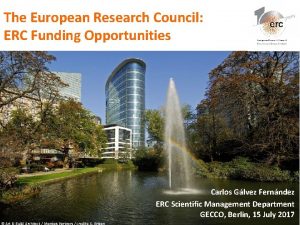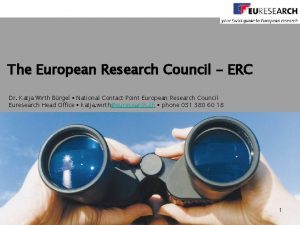The European Research Council GeorgesEric Te Kolste ERC












- Slides: 12

The European Research Council Georges-Eric Te Kolste ERC Executive Agency Head of Department "Resources and Support" Seconded National Experts in ERCEA 27 April 2015

SNE calls for expression of interest à Research Programme Experts (deadline 13 May) à External Auditors (deadline 8 May) Why? • To reinforce the scientific community of our Agency with talented and experienced experts, by sharing their experience and innovative ideas • To give Member States the possibility of sending people who will bring back the knowledge acquired during their secondment • ERCEA currently has 14 SNEs and possibilities expand up to having 28 SNEs in 2020 │2

Eligibility An SNE must be a national of an EU Member State or of a European Free Trade Association (EFTA) Member State or a country with which the Council has decided to open accession negotiations and which has concluded a specific agreement with the European Commission on staff secondments (Turkey) - Eligible employers the employer is a national, regional or local public administration or a public intergovernmental organisation (IGO) the employer is part of the public sector or is an independent university or research organization that does not seek to make profit for redistribution │3

Secondment rules • Seconded National Experts must have worked for their employer on a permanent or contract basis for at least 12 months before their secondment and shall remain employed there throughout the period of secondment. • The SNE’s employer shall continue to pay the salary and must maintain the employment status of the SNE throughout the period of secondment. • The SNE's employer continues to be responsible for all their social rights, particularly with regard to social security and pension. │4

Secondment rules An SNE shall carry out their duties solely in the interests of the Agency. The Agency departments concerned, the SNE’s employer and the SNE must ensure that there is no conflict of interest in relation to the SNE’s duties while seconded to the Agency. The initial period of secondment may not be less than 6 months and more than 2 years; The secondment may be renewed up to a total period not exceeding 4 years; By way of exception, the Director of the Agency can extend the duration for another 2 years, thus arriving to a maximum of 6 years. │5

Working conditions SNEs benefit to a large extent of the same working conditions as staff, such as: A flexible work environment è Like regular staff, SNEs benefit of flexible working hours which means that they can vary the times when they start and finish their work within a defined bandwidth; working time is 40 hours/week. è SNEs can also apply for regular telework on 1 day per week Leave rights and training opportunities è 24 days of basic leave rights per year │6

Working conditions Allowances An SNE is entitled to a daily subsistence allowance (currently: 128, 67€) and a monthly subsistence allowance (depending on distance between place of origin and place of secondment). This does however not apply to SNEs coming from Belgium or persons having worked in Belgium more than 5 years before their secondment. Example: SNE whose place of origin is at 501 km distance from Brussels Daily allowances: 128, 67 * 30 = 3. 860, 10€ per month Monthly allowance for distance > 500 km: 238, 95€ Total: 4. 099, 05€ │7

Working conditions - SNEs are paid the travel expenses at the beginning and end of secondment - SNEs have the possibility to send their child to the European School, subject to available places. - An SNE can take part in missions or external meetings however only as part of a delegation led by a temporary staff member of the Agency or, if on his own, as an observer or for information purposes - SNEs are covered by the Van Breda group insurance policy against accident or death │8

Working conditions For more details on rules applicable to SNEs, please consult: http: //erc. europa. eu/about-erc/job-opportunities │9

Role of the Permanent Representations and Missions • Channel the information at national level to reach and attract the best candidates • Forward the eligible applications to the ERCEA Selection team • Be the first contact point for the Agency to provide relevant information for eligibility of candidates when clarifications are needed • Formalise the secondment (and extension of secondment) through an exchange of letters between the Director of the Agency and the Permanent Representation/Diplomatic Mission │ 10

Some Statistics Applications by country 2013 call 25 21 20 15 13 Total 10 8 5 3 2 2 2 1 1 1 0 Italy Spain Greece Belgium Romania Bulgaria Norway Portugal Poland Germany │ 11

Contact For any questions you may have in the future, please contact: ERCEA Selection Team ERC-SELECTION@ec. europa. eu │ 12

